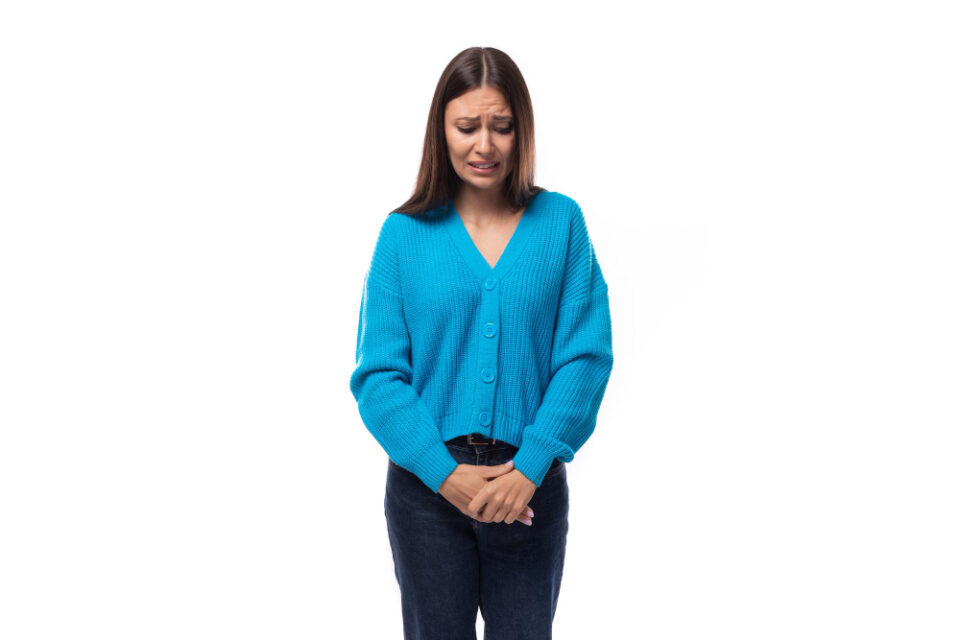She came in, brisk and fiery, her maroon bindi slightly off-centre, like a warning light. Her husband, a mild-mannered man with the permanent look of a deer caught in matrimonial headlights, followed her with the silence of a man who’s learned when not to speak. She sat down on the consultation chair like it owed her an explanation and announced, “I think I have thyroid. Or hormonal imbalance. Or something very serious. I’m getting very angry for no reason.”
I have learned not to flinch when people self-diagnose before even saying hello. So I smiled, offered her a glass of water, and listened. The story tumbled out like spilt sambhar. Irritability. Headaches. Sleeplessness. Bloating. The husband tried to chip in—she glared him into silence. After fifteen minutes of emotional download, she stopped mid-rant, looked at me and said, “Doctor, am I going mad?”
I asked one simple question: “How are your bowels?”
She paused. “Not regular. Maybe once in three days.”
“And do you feel light after going?”
“No. I feel… incomplete. You know? Like there’s still something left.”
And that, dear reader, was the turning point of this marriage.
Over the years, I have come to understand something that Ayurveda has always known, but modern life refuses to acknowledge: your gut governs your mind. Not metaphorically. Literally. Annavaha srotas and manovaha srotas—the digestive and mental pathways—are deeply interconnected. Constipation is not just about bowel movements; it’s about mood swings, fatigue, foggy thinking, and, yes, even marital arguments over chutney placement.
I call it the “Silent Stool Syndrome.” It’s the condition where the bowels don’t speak but the person does—angrily, tearfully, irrationally. When the colon is clogged, so is the calm. Prana cannot flow freely when apana—the downward-moving force—is blocked. The woman in my clinic wasn’t angry—she just hadn’t had a proper bowel movement in days.
One of my earliest mentors used to say, “If you want to know a person’s mental state, ask about their digestion. The mind is only as clean as the colon.” I laughed at that back then. Now I know it’s true.
I treated her not with antidepressants or marital counselling. I gave her sarak churna at night, warm water sips through the day, and ghee with her meals. Advised abhyanga (oil massage) twice a week and added a simple 30-minute evening walk. I asked her to avoid cold foods and late dinners. And just like that, after about ten days, she returned smiling. Even the bindi was straight.
“Doctor, my husband says I’ve become peaceful,” she said, giggling like a schoolgirl. The husband looked at me as if I were a miracle worker. But the real hero was the bowel movement.
The gut microbiome, now a buzzword in research circles, is being linked to depression, anxiety, and even decision-making. The enteric nervous system—often called the ‘second brain’—houses over 100 million neurons. Gut bacteria produce neurotransmitters like serotonin and dopamine. That’s right. The feel-good chemicals are brewed in your belly. Not in a lab. In your intestines.
When the gut is unhappy, the mind follows. It’s not rocket science. It’s digestion science. I see it every day in my clinic. People come with migraines, palpitations, irritability, and even relationship breakdowns. And somewhere in their stories is a quiet constipation, ignored and untreated.
There was a software engineer who thought he had burned out. His real problem? A late-night biryani habit and irregular sleep patterns. After one month of correcting his digestion, his panic attacks disappeared. Another lady thought she needed a divorce. All she needed was a good vasti (medicated enema) and a plate of moong khichdi.
We live in a country where people will not discuss their bowel habits but will fight with their in-laws, blame it on planets, or even accuse Alexa of “conspiring” with their family members. I’ve heard it all.
One woman came and said, “I think my mother-in-law is doing black magic. Every time I enter the kitchen, I feel nauseous.” She had gastritis. Her bowel was sluggish. We worked on it for three weeks. No more black magic. Just clear bowels and open-hearted laughter.
These are not isolated incidents. Every patient is a chapter, and digestion is the recurring plot twist. My teacher used to say, “You are not what you eat. You are what you digest, assimilate, and excrete.” And nowhere is this truer than in emotional well-being.
From an Ayurvedic perspective, constipation is more than just a physical inconvenience. It’s a vata imbalance. Vata, the principle of movement, governs thoughts, communication, and elimination. When it is blocked, the mind becomes restless, anxious, and angry. When apana vayu is stuck, udana (our capacity to express) is disturbed. Words come out wrong. Reactions are disproportionate. A small comment can escalate into a cold war. A delay in a WhatsApp reply can become a betrayal.
One young couple came to me on the verge of separation. He was short-tempered, and she was prone to tears. Their digestion was a disaster. After a month of ghee, buttermilk, yoga, and simple eating, they wrote me a thank-you card. It said, “Turns out we just needed to poop better.”
Then, what are the takeaways?
Eat early dinners. Have warm water, not cold colas. Make ghee your friend. Listen to your belly before you listen to your brain. Walk after meals. Don’t scroll on the pot. Respect your gut. Because every great relationship, whether with yourself or your spouse, starts with healthy elimination.
If your wife is unusually irritable, don’t assume she’s angry. Ask if she’s constipated. It may just save your marriage!
These days, when patients come complaining about unexplained sadness, anxiety, or mood swings, I gently ask, “How’s your digestion?” More often than not, the answer unlocks the mystery.
Emotional balance often starts with a well-timed bowel movement.

